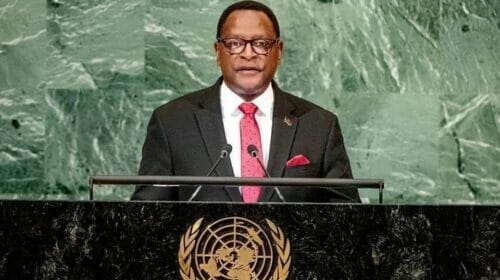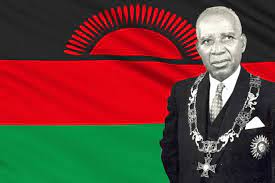Malawi: Should parliamentarians be adding more woes to the country?
By Janet Karim
4 So all the elders of Israel gathered together and came to Samuel at Ramah. 5 They said to him, “You are old, and your sons do not follow your ways; now appoint a king to lead[b] us, such as all the other nations have.”—1 Samuel 8:4-5
In a year that Malawi is reeling, whirling from a variety of home- and foreign-grown calamities, the theatrics coming out of the House of Parliament leave local and foreign onlookers totally nonplussed, discombobulated, and frankly wondering on the one hand, “why on earth do we bother getting out to vote?” On the second hand, many are wondering, is this what we wanted when we ordered democracy?
On the third hand, many Malawians must wonder whose priorities are our elected officers in parliament and elsewhere, serving? And on the fourth hand, do any of our parliamentarians know how dictators are made or dictatorships are established?

How we get here is usually the norm of our preoccupation in this column. Malawi State President, Dr. Lazarus Chakwera, this week, following true-grit honest outlining of the state of the nation of Malawi that commemorates its diamond jubilee (the big six zero), informed Malawians that this is a major milestone. He said the country does not have the luxury to entertain the lack of seriousness, citing that it is facing serious economic situations. The President said Malawians are experiencing pain and called on parliamentarians and other officials to make seriousness their chief occupation.
Malawians are experiencing compounded pain from three factors, President Chakwera reminded the lawmakers to keep in their minds the war in eastern Europe that has led to scarcity and rise in costs of imports. Without calling it out, the President attributed unemployment and absence of factories in the country to the Privatization Programme, which was effected 20 years ago; no policy has been introduced to counter its effect. The third factor President Chakwera said are the four natural calamities that have rocked Malawi in the last 13 months. He emphasized Malawian elected officials need to be serious.
That they were not, in relation to who in the main opposition would deliver the Response statement.
For its response, the Opposition Party, the DPP immediately engaged into wrangle gear that caused the Speaker to weigh in her weightless weight in the inter-political party feud. Political party politicking and wrangling have no room in parliament. Furthermore, every parliamentarian that is involved in these power-grab shenanigans, are doing a great disservice to democracy; they have embarrassed themselves and are wasting precious time instead of championing providing solutions to their electors’ needs. Seriousness.
Malawi is reeling from devaluation of its currency, four natural disasters mentioned above, overcoming the impact of COVID-19, corruption charges of high-ranking officials in the country, scarcity of foods grown in the country such as sugar, bad road networks despite collection of road tolls. Seriousness.
In response to the fourth hand, Malawians must be reminded of the events that led to the 1965 Cabinet Crisis. It was from events that took place in Parliament. The event was the delivery of a statement by Henry Masauko Chipembele that inflamed the former President (then Prime Minister) to leave the State House and drive to shut down the comments in the anti-tiki (3 tambala) contribution for health services. The Presidential sirens led to a scramble out of parliament and country, for their lives.
Among those fleeing were Chipembele, Orton Chirwa, Kanyama Chiume, Willie Chokani, and others. These names appear repeatedly in Malawi historical narratives. However, there were many Malawi politicians that remained in Malawi; among them were John Tembo, Gwanda Chakuamba, Aleke Banda, John Msonthi, Richard Chidzanja Nkhoma, Alec Nyasulu, Ismael Surtee.
The ministers and parliamentarians in NO WAY were the cause of the morphing of Dr. Banda into a dictator in the years 1965 to 1994. On the contrary, it was the actions, the challenge to the authority of then Prime Minister Banda that so inflamed Banda, he literally took out his whipping stick, challenging both those out as well as those within the country. There is a truth and held protocol in all democracies that hold “one president/prime minister/leader at a time.”
The same can be said to be true in political party structures. However, while reenforcing the protocol of respect for the political leader, in the same breath it is underscored again that political parties must remove their party bickering out of the august house of the parliament. With all the anarchy, the hard-to-understand or keep-up with the “what just happened here (?),” does the label democratic Malawi augur (foretell, indicate, portend) well and truthfully. Is Malawi truly a democracy?
Oh Malawi! My Malawi!




